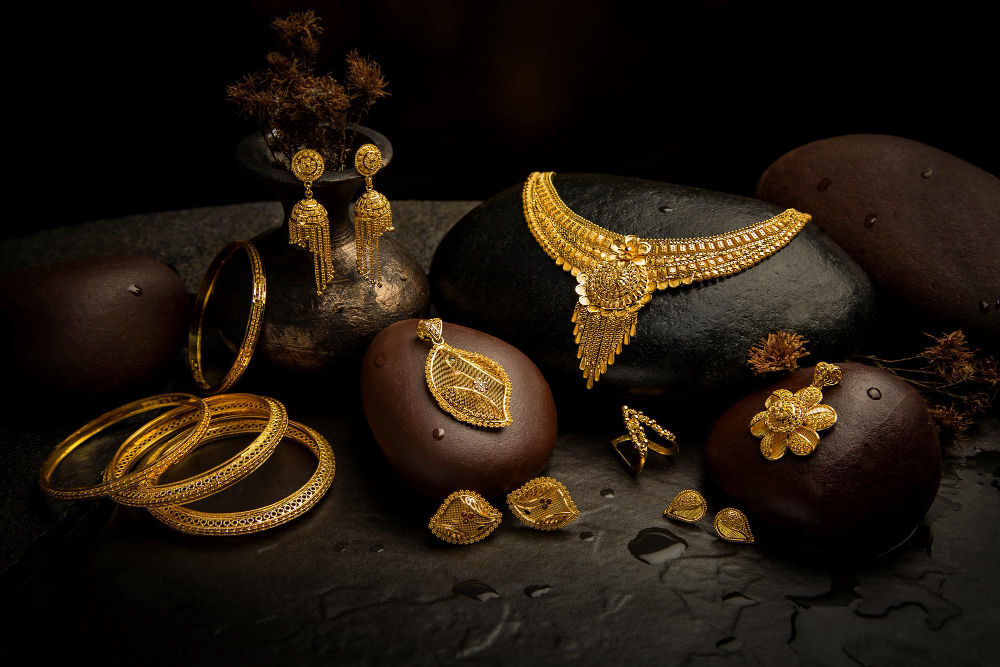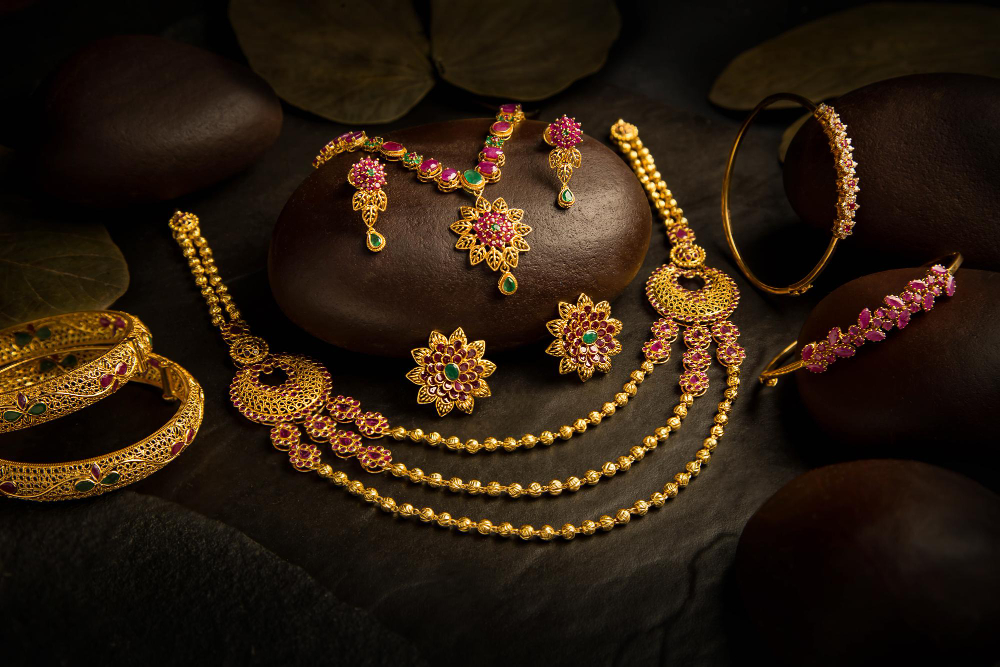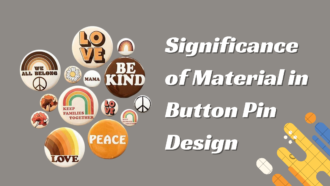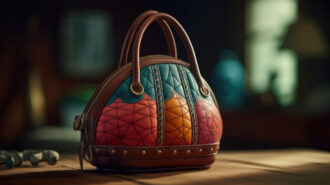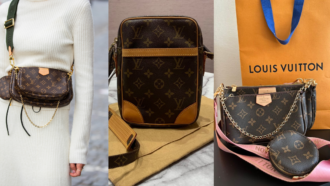How To Buy Yourself the Best Quality Jewellery on The Market!
- 1 How To Buy The Best Quality Jewellery
- 1.1 Know Your Style
- 1.2 Consider The Budget
- 1.3 Protect your Investment
- 1.4 Buy Designer from Louis Vuitton
- 2 Types of Jewellery
- 2.1 I. Necklaces:
- 2.2 II. Earrings:
- 2.3 III. Bracelets:
- 2.4 IV. Rings:
- 2.5 V. Brooches and Pins:
- 2.6 VI. Anklets:
- 2.7 VII. Body Jewelry:
- 3 Conclusion
- 3.1 FAQs:
- 3.1.1 Q: How do I choose the right jewellery for myself?
- 3.1.2 Q: What should I consider when setting a budget for jewellery?
- 3.1.3 Q: How can I protect my jewellery investment?
- 3.1.4 Q: Why is buying designer jewellery a good investment?
- 3.1.5 Q: What types of jewellery does Louis Vuitton offer?
- 3.1.6 Q: What materials are commonly used in jewellery making?
- 3.1.7 Q: Are there options for affordable jewellery for those on a tight budget?
- 3.1.8 Q: How do I know if a jewellery piece is of good quality?
- 3.1.9 Q: Can I buy jewellery online, and is it safe?
- 3.1.10 Q: What should I do if I encounter issues with my jewellery after purchase?
In Short:
- Know Your Style: Choose jewellery that suits your style and complements your wardrobe.
- Consider The Budget: Budget carefully and consider waiting for sales or discounts to make your purchase.
- Protect your Investment: Invest in jewellery from reputable sources and consider insurance coverage for valuable pieces.
Why wait for a special day to see if anyone gives you that jewelry you’ve been keeping an eye on? Instead, you can buy yourself the women’s designer jewellery you’ve always wanted and save yourself the trouble; after all, you deserve it!
How To Buy The Best Quality Jewellery
Know Your Style
When you’re choosing some incredible jewelry for yourself, you want to ensure that you choose something you’ll want to wear today, tomorrow, and years down the line.
So, ask yourself some questions and, based on the answers, choose something fitting for yourself.
- Where do you want to wear this jewellery? Is it an event piece or good for daily life?
- What’s your wardrobe like? Will the jewellery actually suit your wardrobe?
- Do you prefer something feminine or something more masculine for your jewellery purchase?
- Is there a style you’ve been looking at that you want to purchase?
Consider The Budget
Buying a piece of fine jewelry is an investment. If you have something in mind, it’s unlikely to get sold out quickly, so put aside a little money each month until you can buy it comfortably. Jewellery is important to style, but it’s not something that you should buy on an impulse, so be aware of your budget before you start shopping around and you can prevent buyer’s remorse down the line.
Even if you have a limited budget, you can wait for yearly sales or for prices to drop generally in the industry before buying. You may even be able to buy the raw materials and have something made if you know a good jeweler who can do so.
Protect your Investment
It’s not enough to just buy the jewellery; you also have to know how to protect your jewellery for its life as well. So, it’s time to consider buying from places that offer free cleanings for clients and can help with repairs or even a place with a repair plan if things should go wrong. Make sure your jewellery is covered by your home insurance as well, especially if it’s rare or one of a kind; this way, if the worst happens, you won’t lose your whole investment. By taking the right steps, you can protect yourself in the event of loss or damage to your precious jewels.
Buy Designer from Louis Vuitton
When you invest, any jeweller will do, but if you want to be smart with your money, purchasing something designer is an even better option, as the brand name leads to better resale value down the line.
Now, don’t get us wrong, Louis Vuitton has the best handbags for women, but they also have the best jewellery too!
Types of Jewellery
| Type | Description |
| Necklaces | Adorn the neck and come in various styles such as chokers, pendants, lariats, and bib necklaces. Materials include gold, silver, platinum, and gemstones. |
| Earrings | Worn on the ears and available in styles like studs, hoops, dangle earrings, chandeliers, and ear cuffs. Materials range from precious metals to beads and crystals. |
| Bracelets | Decorate the wrist and come in styles like bangles, cuffs, charm bracelets, tennis bracelets, and link bracelets. Materials include metals, leather, beads, and gemstones. |
| Rings | It is worn on fingers and comes in various types such as engagement rings, wedding bands, cocktail rings, and stackable rings. Materials include gold, platinum, silver, and gemstones. |
| Brooches & Pins | Decorative accessories for clothing, scarves, or hats. Designs range from floral motifs to quirky shapes. Materials include metals, enamel, pearls, and gemstones. |
| Anklets | Worn around the ankle, often associated with casual summer outfits or beachwear. Styles include simple chains or designs with charms, beads, or gemstones. Materials include gold, silver, and beads. |
| Body Jewelry | Includes belly button rings, nose rings, eyebrow rings, and nipple piercings. Designs are intricate, and materials range from gold and silver to stainless steel, titanium, and acrylic. |
I. Necklaces:
Necklaces are a staple in women’s jewellery collections, ranging from delicate chains to statement pieces adorned with gemstones or intricate designs. Styles include chokers, pendants, lariats, and bib necklaces, each offering a unique aesthetic appeal. Materials commonly used in necklace construction include gold, silver, platinum, and various gemstones like diamonds, pearls, emeralds, and sapphires.
II. Earrings:
Earrings come in various styles to suit different preferences and occasions. Options include studs, hoops, dangle earrings, chandeliers, and earcuffs. Materials range from precious metals like gold and silver to costume jewellery featuring beads, crystals, and other embellishments. Earrings can add a touch of elegance or a pop of colour to any outfit.
III. Bracelets:
Bracelets adorn the wrist and come in an array of styles, including bangles, cuffs, charm bracelets, tennis bracelets, and link bracelets. They can be simple and understated or bold and eye-catching, depending on the design and materials used. Common materials for bracelets include metals like gold, silver, and stainless steel, as well as leather, beads, and gemstones.
IV. Rings:
Rings are versatile pieces of jewellery worn on the fingers and hold significant symbolic meaning in various cultures, often representing love, commitment, or achievement. Styles range from simple bands to elaborate designs featuring diamonds, gemstones, or intricate metalwork. Rings come in different types, such as engagement rings, wedding bands, cocktail rings, and stackable rings, with materials including gold, platinum, silver, and precious stones like diamonds, rubies, and sapphires.
V. Brooches and Pins:
Brooches and pins are decorative accessories that can be worn on clothing, scarves, or hats to add a touch of flair to an outfit. They come in a wide range of designs, from classic floral motifs to quirky shapes and symbols. Materials used in brooch construction include metals like gold, silver, and brass, as well as enamel, pearls, and gemstones.
VI. Anklets:
Anklets are worn around the ankle and are often associated with beachwear or casual summer outfits. They come in various styles, from simple chains to designs featuring charms, beads, or gemstones. Common materials for anklets include gold, silver, and stainless steel, as well as leather and beads.
VII. Body Jewelry:
Body jewellery encompasses a wide range of accessories worn on various parts of the body, including belly button rings, nose rings, eyebrow rings, and nipple piercings. These pieces often feature intricate designs and may incorporate gemstones or other decorative elements. Materials used in body jewellery construction include gold, silver, stainless steel, and titanium, as well as acrylic and BioFlex for flexible options.
Conclusion
Investing in quality jewellery is not just about adding sparkle to your wardrobe; it’s about making a statement that reflects your style and sophistication. By knowing your style, setting a budget, and protecting your investment, you can make informed decisions when purchasing jewellery that will stand the test of time. Whether you opt for timeless classics or trendy designer pieces like those from Louis Vuitton, your jewellery should not only enhance your look but also hold sentimental and financial value. So, treat yourself to the jewellery you’ve always wanted because you deserve to shine bright in every facet of your life.
FAQs:
Q: How do I choose the right jewellery for myself?
A: Consider your personal style, where you’ll wear the jewelry, and if it complements your wardrobe.
Q: What should I consider when setting a budget for jewellery?
A: Take into account your financial situation and consider waiting for sales or discounts.
Q: How can I protect my jewellery investment?
A: Look for jewelers offering free cleanings and repair services, and consider insurance coverage.
Q: Why is buying designer jewellery a good investment?
A: Designer brands often retain better resale value due to their brand recognition and quality.
Q: What types of jewellery does Louis Vuitton offer?
A: Louis Vuitton offers a range of high-quality jewelry, including necklaces, earrings, bracelets, rings, and more.
Q: What materials are commonly used in jewellery making?
A: Common materials include gold, silver, platinum, gemstones like diamonds and pearls, as well as beads and leather.
Q: Are there options for affordable jewellery for those on a tight budget?
A: Yes, consider waiting for sales or discounts, or explore options for custom-made jewelry using more affordable materials.
Q: How do I know if a jewellery piece is of good quality?
A: Look for hallmarks indicating the metal purity, check for gemstone certifications, and examine the craftsmanship for any flaws.
Q: Can I buy jewellery online, and is it safe?
A: Yes, many reputable jewelers offer online purchasing options, but ensure the website is secure and read customer reviews for peace of mind.
Q: What should I do if I encounter issues with my jewellery after purchase?
A: Contact the jeweler for repair or maintenance services, and if necessary, utilize any warranty or insurance coverage for assistance.

